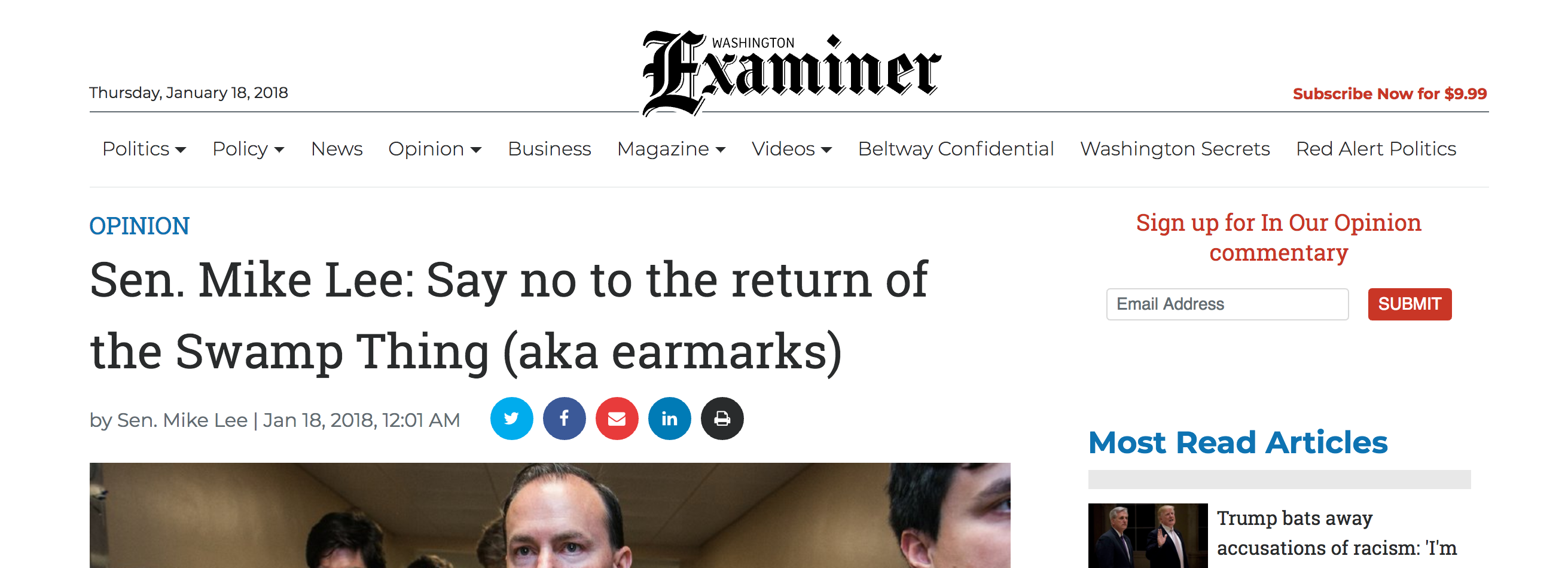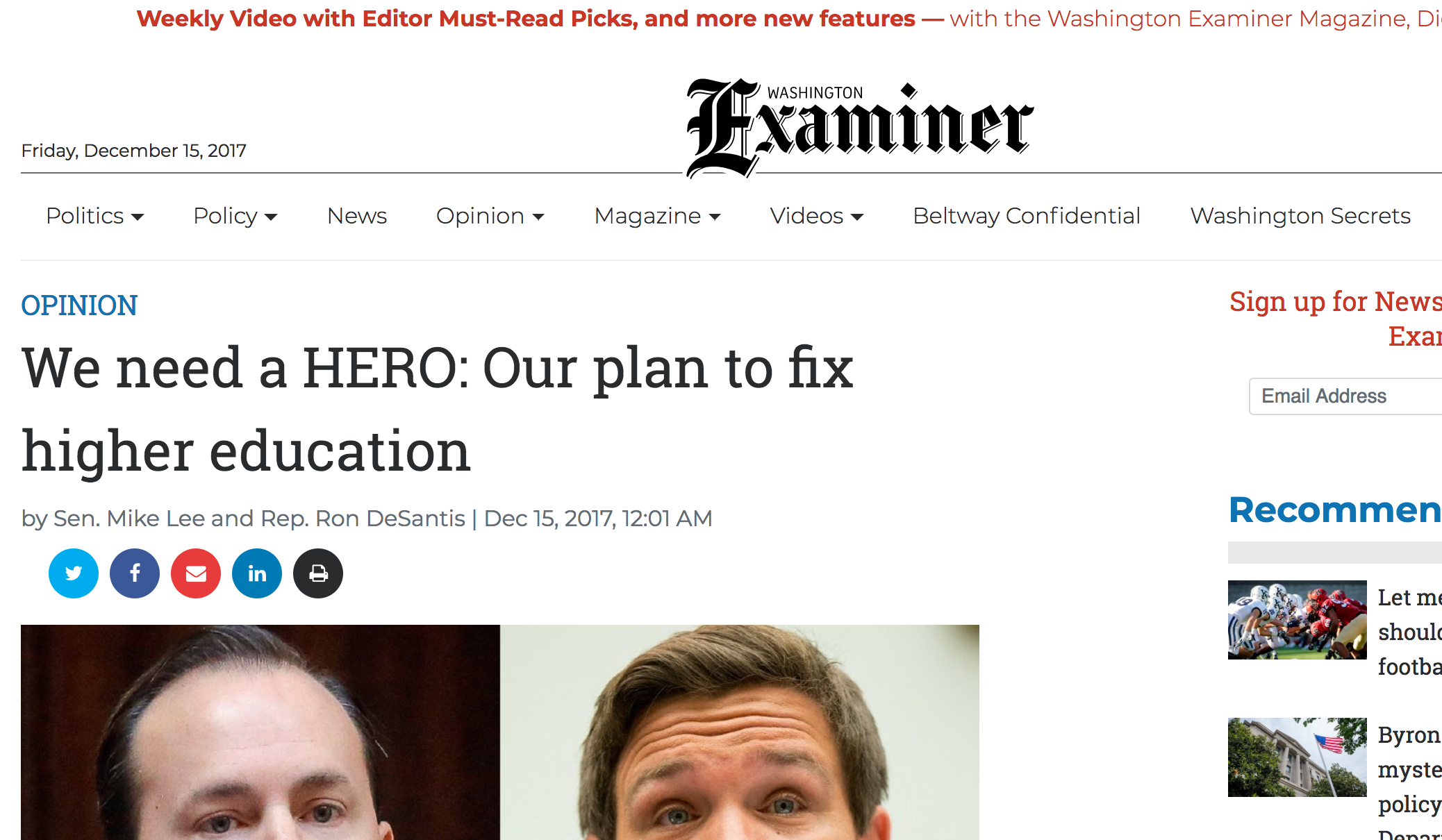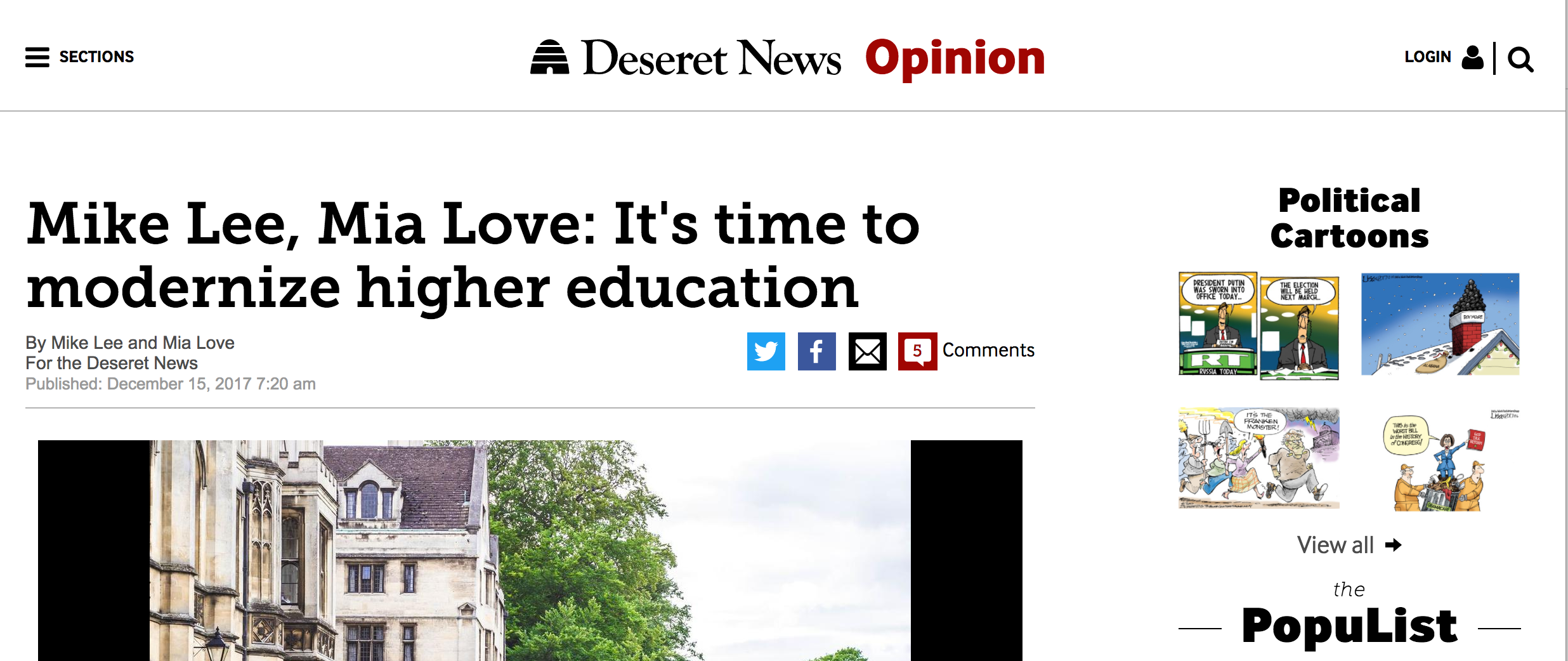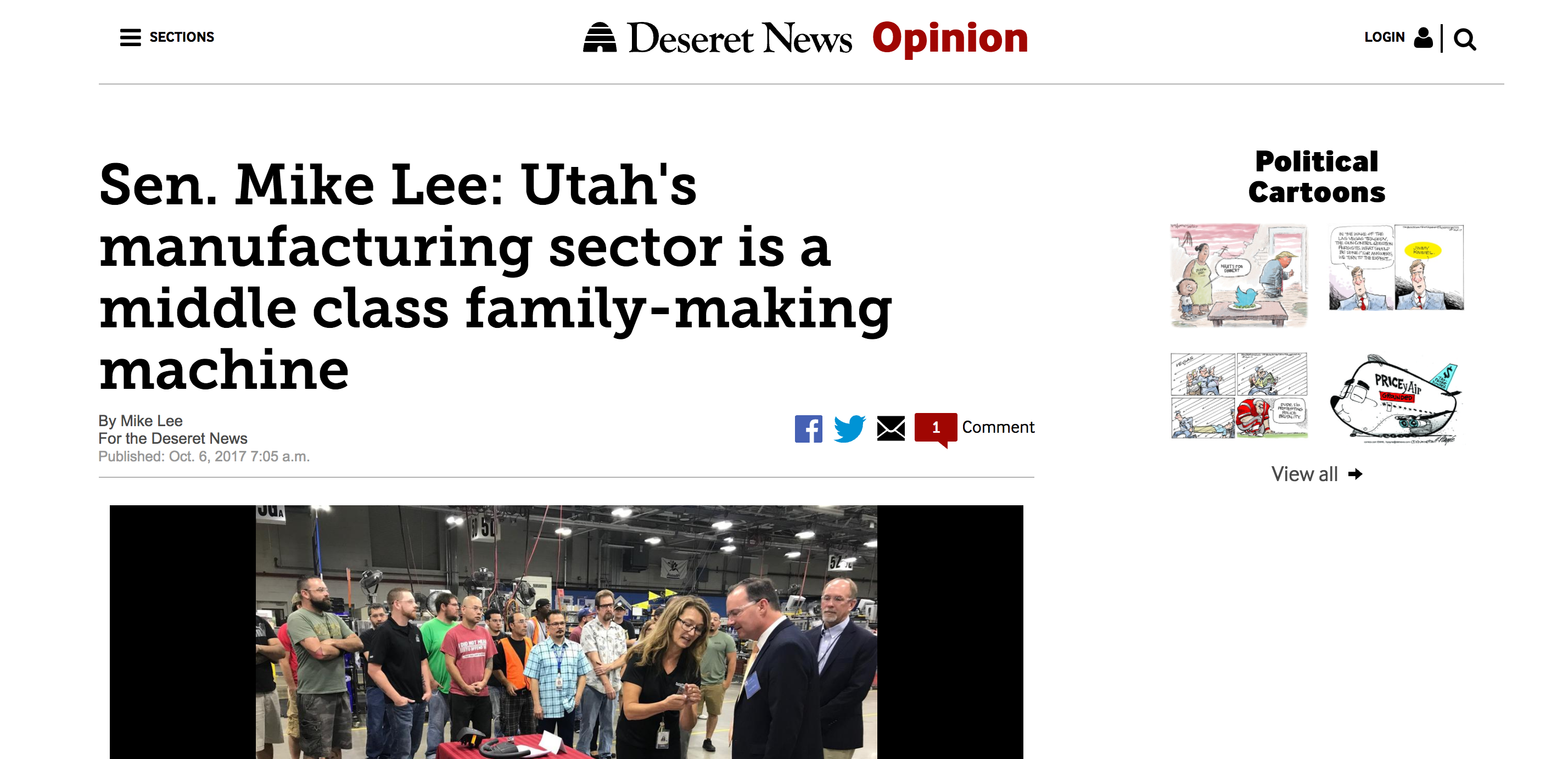Sen. Mike Lee: Say no to the return of the Swamp Thing (aka earmarks)
Jan 18, 2018

Remember earmarks, those infamous, special-interest spending provisions party leaders used to sprinkle over legislation like sugar to get representatives and senators to hold their noses and vote yes on bills they would otherwise oppose?
You probably haven’t heard about earmarks lately, thank goodness. Republicans banned them when the Tea Party class came to Washington in 2010 opposed to the crony corruption. Who can forget pork-barrel embarrassments like the “Bridge to Nowhere,” the “Monuments to Me” projects that members got named after themselves, or the turtle tunnel in Florida (yes, it’s a tunnel for turtles)? Earmarks were everything Americans couldn’t stand about Washington – corrupt, wasteful, entitled, and out of touch.
We need a HERO: Our plan to fix higher education
Dec 15, 2017

The dawn of the 21st century has brought tremendous opportunities and changes to our economy. One consequence is that everyone needs some kind of education after high school. Yet only four in ten Americans achieve an associate’s degree or higher.
It’s a new game, and it’s essential that all citizens can still pursue their American dreams. We need a higher education system that works better for more Americans and their families.
Mike Lee, Mia Love: It's time to modernize higher education
Dec 15, 2017

From our state’s earliest days, Utah has placed a high value on education. It is part of our cultural DNA. So it’s not totally surprising that when it comes to higher education, Utah is getting a lot of things right.
For example, Utah’s tuition rates are the fourth lowest in the nation. Our state has the lowest average student debt. And it enjoys an impressive network of private and public universities, technical colleges and alternative education options. These positive data points directly contribute to Utah’s status as the most upwardly mobile state in the union.
The social element of the opioid crisis
Nov 6, 2017
As we look for ways to solve this crisis, we should keep these social components in mind. More research is needed, but it does appear that loving families help addicts recover from addiction. More importantly, families appear to be a strong defense against becoming addicted in the first place.
In Utah, the Federal Government Puts Prairie Dogs Over People
Nov 6, 2017
In southwestern Utah, federal regulations are artificially pitting people against prairie dogs—to neither’s benefit. There are about 80,000 Utah prairie dogs in the region, and the species is listed as threatened. State biologists would like to move the creatures from backyards and playgrounds to public conservation lands, but that’s forbidden under federal rules.
Sen. Mike Lee: Utah's manufacturing sector is a middle class family-making machine
Oct 6, 2017

Since the founding of our country, manufacturing has always been a cornerstone of our economy.
Here in Utah, we have over 3,000 manufacturing firms employing over 125,000 people at an average salary of over $65,000 a year.
Utah’s manufacturing sector is a middle class family-making machine.
Which is why I am so honored to celebrate Manufacturing Day — an annual celebration of manufacturing when local employers open their facilities to the community so that more people can understand the benefits and opportunities that manufacturing provides.
Make the CBO Show its Work
Aug 4, 2017
When Democrats passed Obamacare on a party-line vote in March 2010, the Congressional Budget Office estimated that by 2016, 21 million people would receive health insurance through the law's exchanges. In reality, just 10 million people did.
The CBO's model was off by more than 100 percent.
The same CBO estimate predicted that Medicaid would grow by 17 million enrollees to about 52 million. In reality, more than 34 million people have signed up for Medicaid since Obamacare became law, for a total of 74.5 million recipients today.
Drones and federalism: Why the states must lead on drone regulation
Jul 10, 2017
Last week, drone industry executives told President Trump they needed more regulation, not less, before they could expand further — a man-bites-dog story if ever there was one. But the answer isn’t to keep waiting on Washington. It’s to make use of one of our nation’s founding principles: federalism.
The Missing Ingredient in BCRA: Humility
Jun 23, 2017
"No, the Senate healthcare bill released yesterday does not repeal Obamacare. It doesn’t even significantly reform American healthcare."
Lee, Cruz: In Trump era, it's time to reassess Western Hemisphere alliances
Jun 22, 2017

As citizens of the United States, we recognize the rights of foreign peoples to live and govern themselves as they see fit. Just as the American people would not tolerate another nation dictating to us how to run our country, we believe other people should be able to make their own laws free from outside interference.